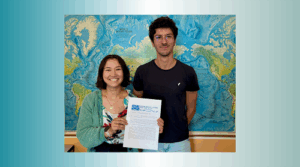Séminaire
Biases in coupled models on Indian Ocean Climate
Sebastian McKenna
Sebastian McKenna Coupled climate models such as those in the Coupled Model Intercomparison Project Phase 6 (CMIP6) suffer from biases in sea surface temperature (SST) which affect the representation of impactful climate phenomena. We investigate the surface layer heat budget to diagnose the processes leading to monthly climatological SST biases in historical simulation of 20 CMIP6 models.
Description
Coupled climate models such as those in the Coupled Model Intercomparison Project Phase 6 (CMIP6) suffer from biases in sea surface temperature (SST) which affect the representation of impactful climate phenomena. We investigate the surface layer heat budget to diagnose the processes leading to monthly climatological SST biases in historical simulation of 20 CMIP6 models. Our findings indicate that SST biases are closely linked to biases in surface winds, although the mechanisms leading to these biases vary across different regions. In the west tropical Indian Ocean, weaker than observed winds reduce surface currents which lead to warm SST biases. Over the Arabian Sea, overly strong surface winds contribute to strong latent heat loss and cool SST biases. In In the southeast tropical Indian Ocean, a cool bias is likely caused by stronger winds, which drive higher levels of offshore heat transport and upwelling compared to observations. These relationships are consistent across models, shown by intermodel relationships across different variables, which help to explain biases in SST.
Previous works showed Pacific Ocean SST impacts the strength of Indian Ocean variability in climate models, indicating that SST bias may affect interannual variability. To explore the effect of removing SST biases in the tropical Pacific Ocean, we conduct SST restoring experiments using the coupled ACCESS-CM2 model. Initial results indicate that restoring to observed climatology (no interannual variability) reduces Indian Ocean SST relative to the control, particularly around the maritime continent. We aim to find what impact Pacific Ocean SST biases have on both seasonal cycle and interannual variability of the Indian ocean.
Informations supplémentaires
Le séminaire se tiendra dans la salle du LOCEAN, couloir 45-55, 4ème étage, pièce 417, campus Jussieu.






